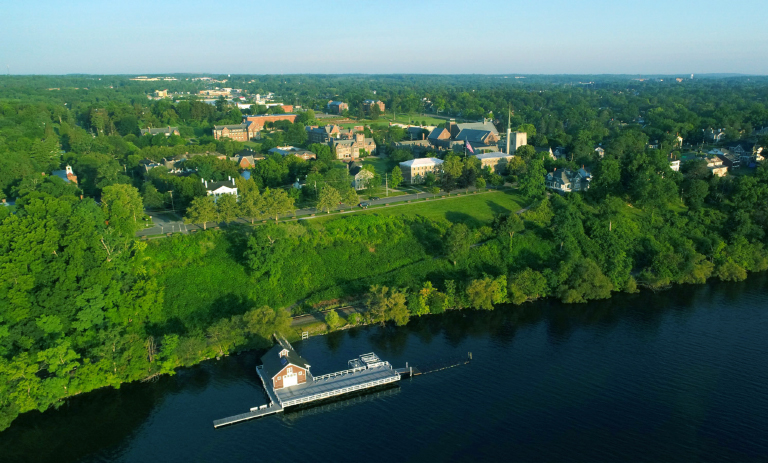
Lives of Consequence
Harry W. Coover, Jr. '41 P'66

Inventor
While supervising a group of Kodak chemists investigating heat-resistant polymers for jet-plane canopies, Harry W. Coover Jr. ’41, P’66 discovered cyanoacrylate monomers. Though they were too sticky to be useful on planes, they required neither heat nor pressure to bond, unique properties at the time.
He eventually developed the chemical, now more commonly known as SuperGlue or Krazy Glue for commercial use, leaving a permanent impact on the modern world. Besides its industrial and household uses, this chemical saved thousands of lives during the Vietnam War and is now commonly used as a medical adhesive in rejoining of veins, arteries, and intestines, ophthalmic surgeries, dental surgeries, uncontrollable bleeding, the repair of soft organs and more.
In 2010, Coover was honored by President Barack Obama with the National Medal of Technology and Innovation, which recognizes those who have made lasting contributions to the United States' competitiveness, standard of living, and quality of life through technological innovation, and to recognize those who have made substantial contributions to strengthening the Nation's technological workforce.
Coover received his B.S. from Hobart before earning his M.S. and Ph.D. from Cornell University. He and his team at Eastman Kodak first worked with cyanoacrylates in 1942 while searching for materials to make clear plastic gun sights. However, they rejected cyanoacrylates as being too sticky. Nine years later, Coover was overseeing Eastman Chemicals Division chemists investigating heat-resistant polymers for jet canopies when cyanoacrylates were once again tested and proved too sticky. That time around, however, Coover recognized that he had discovered a unique adhesive; Super Glue hit the market in 1958.
While much attention was given to the glue's capacity to bond solid materials, Coover was also the first to recognize and patent cyanoacrylates as a tissue adhesive and hemostat. It was used as a hemostatic spray during the Vietnam War to temporarily patch the internal organs of injured soldiers until conventional surgery could be performed. Tissue adhesives are now used worldwide for a variety of sutureless surgical applications in both human and veterinarian procedures.
In July 2015, Coover will be noted in a special segment of the CBS television show, "Henry Ford's Innovation Nation." A half-hour, educational and informative program, "Henry Ford's Innovation Nation" acknowledges both inventors and innovators of the past and present. Each episode features new inventions and background information on how each of them came to life. Coover and his invention are the focus of a segment called, "Mo You Know," named for host Mo Rocca, a humorist and correspondent for CBS News Sunday Morning. The segment takes the form of a quiz about inventors and the inventions that they created.
Coover worked for Eastman Kodak for 40 years, authoring 60 papers. During his lifetime, he held more than 460 patents, with Super Glue numbered just one among his many discoveries. He viewed his most important work as "programmed innovation," a management methodology he created that emphasized research and development. Implemented at Kodak from 1980 to 1984 at Eastman Chemical Division, his methodology resulted in the introduction of 320 new products and sales growth from $1.8 billion to $2.5 billion. Coover later formed an international management consulting practice, advising corporate clients around the world on the programmed innovation methodology.
A recipient of the Alumni Association's highest honor, the Hobart Medal of Excellence, Coover also received the Southern Chemist Man of the Year Award for his outstanding accomplishments in individual innovation and creativity. He held the Earle B. Barnes Award for Leadership in Chemical Research Management, the Maurice Holland Award and is a medalist for the Industrial Research Institute. In 2004, Coover was inducted into the National Inventor's Hall of Fame in Akron, Ohio, where he joined the ranks of such inventors as Alexander Graham Bell, Henry Ford and Thomas Edison.
On March 26, 2011, Coover passed away at his home in Kingsport, Tenn., but the legacy of his inventions and innovations live on through their continued use worldwide.
